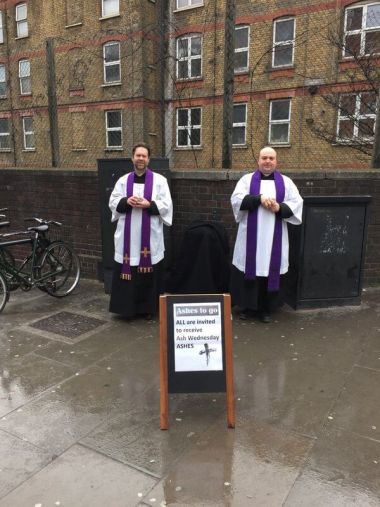Love Lent? 5 ways to make it more biblical
I have, to be honest, always been a bit ambivalent about giving things up for Lent.

Partly, I'm sure, that's a personal flaw; I just like doing the stuff I like, and haven't really internalised the whole discipline-for-the-sake-of-discipline thing. After all, that's fundamentally what it's about: we give things up not because there's anything wrong with chocolate, or alcohol, or the BBC (yes, one friend is giving up the Beeb until Easter), but because in taking control of small things we're making a statement about taking control of much bigger things. The discipline of fasting is part of the discipline of life. I see all that, but it's never really worked for me.
I'm also a Baptist and stand proudly within the Free Church tradition. Part of that is that we're relaxed about the Christian Year. It's a useful guide, but it's not a straitjacket. Generally speaking, observing Lent is more of a thing in Churches where they actually know what Quinquagesima means.
Having said that, if Lent is something that brings you closer to God, expands your knowledge of Him and is a meaningful spiritual exercise, I'm the last person to want to criticise that. I think my brand of Christianity, and Protestantism generally, is probably the poorer for having intellectualised and internalised faith and purged itself of most of the rituals and observances that other traditions value.
But as a relative outsider to the tradition, I think it's fair enough to ask questions of people observing Lent, not to undermine them but to challenge them. So here are five.
1. Is your dry Lent fundamentally different from your dry January?
Dry January has become a thing in recent years. The idea is that people drink too much over Christmas, so use January to detox. It's better for the liver and the waistline, it's only a month as opposed to the seven weeks of Lent, and if you're a regular social drinker it's just sufficiently inconvenient while still being socially acceptable and rather praiseworthy. But it has no spiritual content. It's just something that makes you feel better and more virtuous.
If your Lent discipline – whatever you choose – is like that, you might as well do dry January. Giving up something for the good of your soul is much more complicated than doing it for your body. You have to think and pray, too.
2. Does anyone else know what you're doing?
In the Sermon on the Mount, Jesus warned against making it obvious when we fast: "When you fast, put oil on your head and wash your face, so that it will not be obvious to men that you are fasting, but only to your Father, who is unseen" (Matthew 6:17-18). If you give up something that's really hard you might want to tell close friends so they can support you, but generally the rule applies: it's between you and God.
3. Do you feel like a failure if you don't stick to your Lent vow?
If Lent means anything, it's not as a personal challenge like running a marathon or climbing a mountain. It's about God, not about you, and God will think no worse of you if you fall off the wagon occasionally, and no better if you stick it out till the bitter end. Jesus was clear that God's laws need to be kept, but he was very relaxed about the codes of behaviour human beings had invented and labelled "right" and "wrong". Keeping Lent falls into that category.
4. Is it making you a better person?
Some people cope better with self-denial than others. For some it's a genuinely purifying experience, letting them step back from things they used to take for granted and concentrate on God. It makes other people mean and grouchy. The good intentions are there, but it doesn't fit their character – or maybe they've just bitten off more than they can chew, perhaps without really thinking or praying it through. If so, just stop; see '3' above. As the great hymn writer Isaac Watts says, "Religion never was designed/ To make our pleasures less."
5. Are you sure giving things up is the best use of Lent?
Lent is patterned on the 40 days Jesus spent in the wilderness being tempted by Satan. But there's more than one way to deal with the devil. As well as confronting and resisting our lower impulses, we can channel our energies into good deeds and kind words – hence the 40 Acts initiative that encourages people to take positive actions during the period.
Lent has its own spiritual dangers. We can take it too seriously, or not seriously enough. It can lead us not just into a deeper knowledge of God, but into sin. But if we do observe the season, it's in the Resurrection light of Easter, which speaks of forgiveness and renewal for all of us.
Follow Mark Woods on Twitter: @RevMarkWoods











